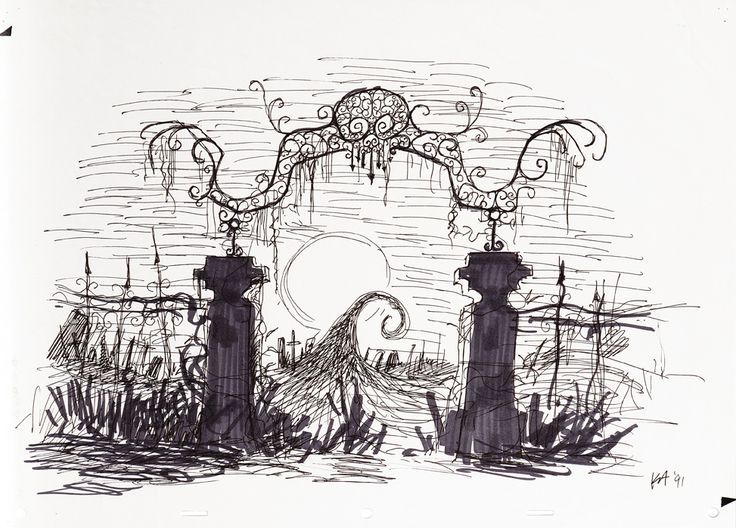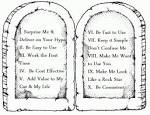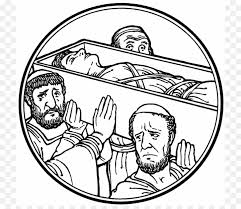Matthew 17:1 – And after six days Jesus took with him Peter and James, and John his brother and led them up a high mountain by themselves.
The portion of scripture in Matthew 17:1-9 is commonly referred to as 'the transfiguration' or 'the mount of transfiguration'. The events in this passage have been  repeated in Mark 9:2-10 and Luke 9:28-36. Each gospel writer gives us a few unique details, so we will include all three passages in today's lesson. Since this event is recorded in three separate gospels, we can be sure it has special importance.
repeated in Mark 9:2-10 and Luke 9:28-36. Each gospel writer gives us a few unique details, so we will include all three passages in today's lesson. Since this event is recorded in three separate gospels, we can be sure it has special importance.
We are told that the transfiguration happened 'after six days'. That seems kind of odd – six days after what? Do you know?
Actually, it was six days after Jesus accepted the title of Messiah and then revealed to his disciples that he was going to suffer and die, then be resurrected and glorified:
Matthew 16:21 – From that time Jesus began to show his disciples that he must go to Jerusalem and suffer many things from the elders and chief priests and scribes, and be killed, and on the third day be raised.
So, roughly a week after the conversation about his future suffering/death and resurrection/glorification, Jesus goes up the side of a mountain. Luke tells us that his intention was to spend time in prayer:
Luke 9:28 – Now about eight days after these sayings he [Jesus] took with him Peter and John and James and went up on the mountain to pray.
As he was in prayer, his glory was revealed to the three disciples:
Matthew 17:2-3 – And he was transfigured before them, and his face shone like the sun, and his clothes became white as light. And behold, there appeared to them Moses and Elijah, talking with him.
The word "transfigure" means to change appearance or form. It does not denote a change in the substance of a thing, but simply a change of the thing's appearance. We see that Jesus' body, as well as his clothing, were changed in appearance.
This means that Jesus did not leave his body and appear to the disciples as a spirit. He remained in the body of flesh that he was given when he was born into the world as a servant. Because he was both God and man, he had a veil over his Godly form. During the transfiguration, he removed the veil and the disciples saw his glory.
The scripture says he appeared in light. This makes sense, because Jesus is the light of the world (1 John 1:5), he dwells in light (1 Timothy 6:16), and he covers himself with light (Psalms 104:2). Therefore, if he was going to reveal at least part of his Godly form, he would appear in light.
Let's switch gears and talk about Jesus' visitors for a moment. Do you have a favorite bible character? How about King David or Joseph or Ruth & Naomi, or Noah? Of all the saints up in heaven, why do you suppose it was Moses and Elijah who came to be with Jesus on the mountain top?
It is because Moses and Elijah represent both the law and the prophets. This is significant. The Jews do not want to receive the new covenant that Jesus is bringing with him. They want to hold onto the old covenant. But Jesus has come to fulfill the law and the Old Testament prophesies; once they are fulfilled they will pass away. They simply won't be needed any more. So when both of these living saints give glory and honor to Jesus, they are acknowledging that Jesus is the mediator of the better covenant.
So in a way, God was being gracious to the Jews. The endorsement of the new covenant by Moses and Elijah should have given them comfort.
For us, this passage raises a number of questions. If Jesus was going to reveal his glory, why do it for only 3 of the disciples? Why not all 12? Why these particular three? Why reveal his glory in the first place? What was the purpose of this revelation? What did Moses and Elijah have to say to Jesus? Let's see what we can find.
First of all, Luke tells us that the conversation between Jesus, Moses and Elijah focused on the topic of his imminent suffering/death and resurrection/glorification.
Luke 9:30-31 – And behold, two men were talking with him, Moses and Elijah, who appeared in glory and spoke of his departure (exodus), which he was about to accomplish at Jerusalem.
So, what Jesus (and all of heaven) already knew now becomes evident to his disciples. That is, Jesus was not going to be crucified by the will or power of man. He was not going to be arrested and put to death because of a decision by Rome or the Jewish religious leaders, or anyone else.
He was going to willingly lay down his life for mankind, according to the master plan that was put in place before the world was created! Jesus makes it very clear that HE is the one who allows his death to take place, and that he also will be raised to life again:
John 10:17-18 – For this reason the Father loves me [Jesus] because I lay down my life that I may take it up again. No one takes it from me but I lay it down of my own accord. I have authority to lay it down, and I have authority to take it up again. This charge I have received from my Father.
Thus, the event of the transfiguration proves that Jesus was the Son of God, who had come into the world to be an atoning sacrifice for sin. This event reinforces or proves the statement that Peter made a week prior – that Jesus was the Christ, the Son of the Living God. Seeing this before the crucifixion proved to them that Jesus was in complete and total charge of the events of his life and death.
Why were only three disciples chosen to witness the transfiguration? Because according to Jewish law, 2 or 3 was the minimum number of witnesses needed to verify that something was true:
Deuteronomy 19:15 - ...at the mouth of two witnesses, or at the mouth of three witnesses shall the matter be established.
Why do you suppose Jesus chose those 3 disciples in particular? While we don't know for sure, we can make some inferences:
- They seem to be the 'inner circle' of the 12.
- They were the only three present when Jesus healed Jarius' daughter.
- These three were present with Jesus in the garden of Gethsemane, where they witnessed his suffering.
- As we saw in Matthew chapter 16, Peter will be a great instrument in carrying out the work of the gospel.
- John, as the only disciple not to be martyred, will be on earth longer than any other disciple. His eyewitness account will be around for the longest period of time.
Matthew 17:4 – And Peter said to Jesus, "Lord, it is good that we are here. If you wish, I will make three tents here, one for you and one for Moses and one for Elijah."
If you had been one of the eyewitnesses of this event, how would you have reacted?
In his gospel, Mark tells us that the disciples were frightened and amazed, and didn't really know what to do (Mark 9:5-6). In our culture, we could say that this event was 'mind-blowing'.
In keeping with his character, Peter speaks first and his suggestion is rash and inadvisable. He wants to build tents or dwelling places for the heavenly visitors, so he can remain in their company.
On the one hand, who could blame him for wanting to remain in their company? We can imagine the wonder and joy of having this peek into the heavenly realm.
But on the other hand, a fading tent would never be suitable for saints who had already been admitted to the glory of heaven! Besides, Jesus' mission is not to bring a teeny-tiny bit of heaven and keep it on earth. He intends to subject himself to the suffering and shame necessary to atone for the sin of mankind; he intends to take all the souls of earth up to heaven, where we can all enjoy his presence for eternity!
Perhaps, in the back of his mind, Peter still believed that Jesus was going to set up his kingdom on earth at that time. Or, perhaps he just spoke the first thing that popped into his head without thinking. I know I have been guilty of doing that!
Matthew 17:5 – He was still speaking when, behold, a bright cloud overshadowed them, and a voice from the cloud said, "This is my beloved Son, with whom I am well pleased; listen to him."
The word 'overshadowed' means 'to be diffused or spread". This means that the bright cloud (literally the cloud of light) enveloped them like a fog, rather than like a high covering that would provide shade.

This cloud has long been a symbol of God's divine presence. In Exodus (14:19-20) God personally leads the Israelites in a cloud. God appears on Mount Sinai in a cloud with fire (Exodus 24:15-17). And a cloud, called the Shechinah glory, dwelt in the Most Holy place in the temple (1 Kings 8:10-11, Ezekiel 1:4). Therefore, the appearance of this cloud indicated the presence of God.
God speaks from the cloud, addressing Jesus as his beloved Son, in whom he is well pleased. Does that sound familiar? This is the second time that God has audibly spoken that phrase about Jesus. The first time was at the time of Jesus' baptism, just before the trial of his temptation in the wilderness.
God then instructs the men to listen to his Son. Thus, God himself exalts Jesus over both the law and the prophets. They were servants, but Jesus is the Son. This encounter strengthens the faith of the disciples; soon they would be called upon to go forth and preach the gospel which would be rejected by most of the Jews. Yet, their faith would stand the test. They knew the truth and nothing could dissuade them from testifying of Jesus.
Like the disciples, our duty is to Christ and no other. Non-Christians will use the logic of this world to tell us why we should not serve Jesus our king, but if we are close to him and we hear his voice, we will not be led astray.
Matthew 17:6-8 – When the disciples heard this, they fell on their faces and were terrified. But Jesus came and touched them, saying, "Rise and have no fear." And when they lifted up their eyes, they saw no one but Jesus only.
The majesty and glory of God is so powerful that no man in his sinful state can bear even a touch of it, without fear and trembling. Certainly, no man can see God and live. (Remember, the disciples only heard his voice). Neither can any mortal man can stand before God. For example, Saul (who later became the apostle Paul), fell to the ground when a light from heaven fell upon him. Even the Old Testament priests fell on their faces when God appeared in the cloud in the Most Holy place:
1 Kings 8:10-11: And when the priests came out of the Holy Place, a cloud filled the house of the Lord, so that the priests could not stand to minister because of the cloud, for the glory of the Lord filled the house of the Lord.
Here is something interesting to consider: The time that we Christians spend on earth is a very special time, which will never occur again. Yes, it has trials and difficulties, but it also has special opportunities. For example, this is a time when we have the privilege of worshipping God willingly, by faith. The truth is, if we were to actually see a glimpse of God, it would so impact us that worship would cease to be voluntary. It would automatically come out of our mouths. We wouldn't be able to do anything else, even if we wanted to.
I believe that our praise and worship is something special to God, because it is a true gift given from our hearts, by faith. And we are only going to have this opportunity of worshipping God in this manner for a very, very short time. So why not take full advantage of it? Why not spend some extra time this week in his presence, giving Him glory and honor and praise for who he is and what he has done?
 The disciples were certainly impacted by the experience they had in God's presence. In fact, they were flat on their faces, trembling with fear. Jesus comforts their fears by touching them and telling them not to fear.
The disciples were certainly impacted by the experience they had in God's presence. In fact, they were flat on their faces, trembling with fear. Jesus comforts their fears by touching them and telling them not to fear.
Jesus is the only one who can do this, because he is the mediator between God and man. In fact, His role as our redeemer allows us to come boldly into God's presence, without fear. And, hallelujah, Jesus Christ is the same yesterday, today and forever so we continue to have full access to the presence of God!
Matthew 17:9 – And as they were coming down the mountain, Jesus commanded them, "Tell no one the vision, until the Son of Man is raised from the dead."
Why do you think Jesus told them to keep this to themselves until after his resurrection?
This experience was designed to confirm the truth that he was the Messiah. If they published it while he was still with them, it would have provoked the Jews and endangered his life.
Once he was crucified, they would need this evidence that he was the Christ. That was the proper time to make use of this heavenly experience. There were three witnesses to this event which is the number required by law; so this was clear proof that he was the Messiah. Peter especially uses this in his spreading of the gospel:
2 Peter 1:16-18 – For we did not follow cleverly designed myths when we made known to you the power and coming of our Lord Jesus Christ, but we were eyewitnesses of his majesty. For when he received honor and glory from God the Father, and the voice was borne to him by the Majestic Glory, "This is my beloved Son, with whom I am well pleased," we ourselves heard this very voice borne from heaven, for we were with him on the holy mountain.
This should be an encouragement to all of us; whatever God has called us to do, he will equip us with whatever we need to get that job done. He never sets us up for failure, he always sets us up to be victorious in Christ Jesus.
Matthew 17:10 – And the disciples asked him, "Then why do the scribes say that first Elijah must come?"
As they come down the mountain, the disciples are trying to reconcile the things they have been taught by the religious leaders with what Jesus is telling them.
There is no question in their minds that Jesus is the Messiah. However, according to Jewish understanding of Old Testament prophesy, Elijah was to personally reappear to the Jewish nation before the Messiah came (See Malachi 4:5). Since they couldn't figure this out, they asked Jesus.
Matthew 17:11 – He answered, "Elijah does come, and he will restore all things."
Jesus does not refute the belief that Elijah would come; he actually confirms it.
The problem with the religious leaders is that they were looking for a physical fulfillment of Malachi's prophesy – they were literally looking for Elijah the Tishbite to appear out of nowhere. But the Old Testament promise simply referred to a person who displayed the same SPIRIT that Elijah had.
In other words, the forerunner of the Messiah would be a man who would preach a doctrine of repentance, calling the nation to renounce their sinful ways, and turn back to faith and obedience to God.
He would be a man of restoration. To restore means to put in proper order, to heal or to correct. The prophet would correct beliefs in regards to the coming Messiah and the kingdom of heaven.
All this was clearly fulfilled in the life and ministry of John the Baptist. In fact, the angel Gabriel said this about John the Baptist before his birth:
Luke 1:16-17 – And he [John] will turn many of the children of Israel to the Lord their God, and he will go before him in the spirit and power of Elijah�to make ready for the Lord a people prepared.
There can be no doubt – John the Baptist was the "Elijah" who was to come.
Matthew 17:12-13 – "But I tell you that Elijah has already come, and they did not recognize him, but did to him whatever they pleased. So also the Son of Man will certainly suffer at their hands. Then the disciples understood that he was speaking to them of John the Baptist.
The Jews did not acknowledge or recognize John as the forerunner of the Messiah. They ridiculed him, persecuted him and at last put him to death (Herod Antipas gave the order to behead John, but Jesus charges the Jews with his murder).
Jesus tells the disciples that he too, will also suffer and be rejected by the Jewish nation. But again, this was not by the will of any man. It was by the will of Jesus and Father God.
Let me offer you some encouragement:
The disciples were witnesses of what they had seen on the mountain, and their testimnoy was a tool that they used in spreading the gospel message. You and I can also bear witness to the strength, deliverance, protection, provision and peace that Jesus has given us. In our current times of uncertainty and fear, our testimony of what God has done for us can be a tool that we use to share the gospel message to our friends and neighbors.
I encourage you to let your light shine for Christ - be ready to share what he has done for you.
Let me offer you some relief and strength:
Moses and Elijah appeared to the disciples alive and well, even though they had walked the earth hundreds of years before this time. All of their earthly trials and tribulations, all of their aches and pains, all of their fears and questions were gone!
One day, this will be true for you and I as well. One day, we will be in heaven with Moses, Elijah and all of the other heroes of the faith. One day, our earthly struggles will also be over.
So whatever you are going through right now, know that it will not last forever! Relief may come in this life, but if not - then know that this life does not last for eternity. So strengthen your 'weak hands' and 'feeble knees' (Isaiah 35:3). Strive for a strong finish to your earthly race!














 A couple of things are worth noting here. First, the weather was fine when the disciples began their journey. There was no mention of bad weather on the horizon when Jesus broke up the meeting and sent them on their way.
A couple of things are worth noting here. First, the weather was fine when the disciples began their journey. There was no mention of bad weather on the horizon when Jesus broke up the meeting and sent them on their way. 


 jewels or a palace or even a city, and he was probably more than willing to give her those material things.
jewels or a palace or even a city, and he was probably more than willing to give her those material things.
 Stop and ask yourself this question: What is it about buried treasure that we find so appealing?
Stop and ask yourself this question: What is it about buried treasure that we find so appealing?







 However, if they truly considered Jesus as their master, they would have believed his words and been obedient to his commands. Instead, we find them in rebellion. Clearly, their words were empty phrases. What about us? Do we claim Jesus as Lord? If so, our actions should testify to this fact.
However, if they truly considered Jesus as their master, they would have believed his words and been obedient to his commands. Instead, we find them in rebellion. Clearly, their words were empty phrases. What about us? Do we claim Jesus as Lord? If so, our actions should testify to this fact. 
